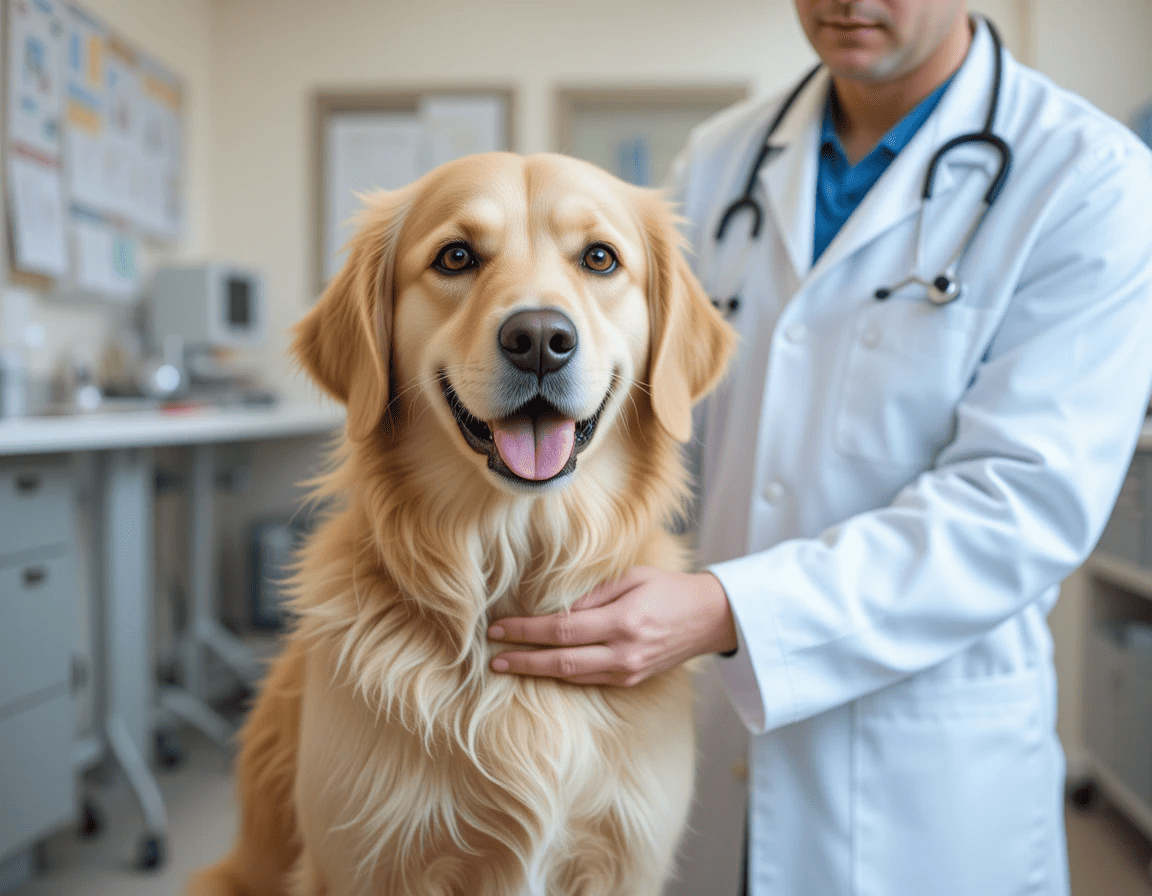
Top 10 Common Dog Health Problems and How to Prevent Them
As a dog owner, there’s nothing more important than your pup’s health and well-being. But dogs, just like humans, are prone to a wide range of health problems — some of which are preventable with the right care, while others need early detection and proper treatment.
In this article, we’ll explore the 10 most common dog health issues, their symptoms, causes, and — most importantly — how to prevent them before they impact your dog’s quality of life.
🦴 1. Obesity
📉 What is it?
Obesity is one of the most widespread health problems among dogs in the United States. It occurs when a dog consumes more calories than it burns, leading to excessive weight gain.
⚠️ Symptoms:
Noticeable weight gain
Difficulty walking or breathing
Loss of energy and endurance
No visible waistline
✅ Prevention:
Feed high-quality food in controlled portions
Limit treats and avoid table scraps
Ensure daily physical activity
Monitor weight regularly
💡 Tip: Ask your vet about your dog’s ideal weight and adjust their diet accordingly.
🐾 2. Ear Infections
📉 What is it?
Ear infections are especially common in breeds with floppy ears like Cocker Spaniels, Basset Hounds, and Labradors. Moisture, bacteria, or yeast can get trapped inside the ear canal, leading to infection.
⚠️ Symptoms:
Scratching or rubbing ears
Head shaking
Foul odor
Redness or discharge
✅ Prevention:
Clean your dog’s ears weekly
Keep ears dry after swimming or baths
Use vet-approved ear cleansers
🧴 Pro Tip: Never insert cotton swabs deep into the ear — it can cause damage.
🐕 3. Dental Disease
📉 What is it?
By age 3, most dogs show signs of periodontal disease — an infection of the gums and tissues surrounding the teeth. Poor dental hygiene can lead to pain, tooth loss, and even heart or kidney problems.
⚠️ Symptoms:
Bad breath
Red or bleeding gums
Loose or missing teeth
Difficulty eating
✅ Prevention:
Brush your dog’s teeth at least 2–3 times a week
Provide dental chews or toys
Schedule regular veterinary dental cleanings
🦷 Remember: Healthy teeth = a healthy dog.
🐶 4. Skin Allergies
📉 What is it?
Skin allergies (also known as atopic dermatitis) are very common in dogs. They can be triggered by food, fleas, or environmental allergens like pollen and mold.
⚠️ Symptoms:
Constant scratching or licking
Red, inflamed skin
Hot spots or hair loss
Ear infections
✅ Prevention:
Use flea preventatives
Feed a balanced diet with omega-3s
Regularly bathe with hypoallergenic shampoo
Identify and avoid allergens with vet testing
🌼 Note: Some dogs may need prescription allergy meds to stay comfortable.
🦠 5. Parvovirus (Parvo)
📉 What is it?
Parvo is a highly contagious and deadly virus that primarily affects unvaccinated puppies. It spreads through contact with infected feces or contaminated surfaces.
⚠️ Symptoms:
Severe vomiting and diarrhea
Lethargy
Loss of appetite
Fever or low body temperature
✅ Prevention:
Vaccinate puppies on schedule
Avoid public places until fully vaccinated
Disinfect surfaces and belongings
💉 Parvo is preventable — vaccines save lives.
💔 6. Heartworm Disease
📉 What is it?
Heartworms are deadly parasites transmitted through mosquito bites. They lodge in the dog’s heart and lungs, causing organ damage and eventual death if untreated.
⚠️ Symptoms:
Coughing
Fatigue
Weight loss
Swollen belly due to fluid buildup
✅ Prevention:
Give monthly heartworm preventatives year-round
Get annual heartworm tests at the vet
🦟 Even indoor dogs are at risk — prevention is cheaper than treatment.
🐩 7. Hip Dysplasia
📉 What is it?
Hip dysplasia is a genetic condition where the hip joint doesn’t develop properly, leading to pain, arthritis, and mobility issues. It’s especially common in large breeds like German Shepherds and Labs.
⚠️ Symptoms:
Limping or stiffness
Reluctance to jump or climb stairs
Difficulty standing up
Decreased activity
✅ Prevention:
Maintain a healthy weight
Avoid over-exercising puppies
Provide joint supplements if recommended
Choose breeders who screen for hip issues
🦴 Early diagnosis can reduce long-term pain and damage.
🐾 8. Diarrhea and Digestive Issues
📉 What is it?
Digestive upsets are common in dogs and can be caused by dietary indiscretion, infections, parasites, or food intolerance.
⚠️ Symptoms:
Loose or frequent stools
Vomiting
Loss of appetite
Dehydration
✅ Prevention:
Feed consistent, high-quality food
Avoid sudden diet changes
Keep trash and toxic foods out of reach
Deworm regularly
🍗 Introduce new foods slowly and monitor reactions.
🧬 9. Cancer
📉 What is it?
Cancer is one of the leading causes of death in older dogs. Tumors can form in the skin, bones, or organs. Early detection and treatment are crucial.
⚠️ Symptoms:
Unexplained lumps or swelling
Weight loss
Lethargy
Wounds that don’t heal
✅ Prevention:
Regular vet checkups and screenings
Spay/neuter to reduce certain cancer risks
Monitor and report any new growths
🧪 The earlier it’s caught, the better the outcome.
🌡️ 10. Kennel Cough
📉 What is it?
Kennel cough is a contagious respiratory infection that spreads easily in shelters, boarding facilities, or dog parks.
⚠️ Symptoms:
Dry, hacking cough
Sneezing
Mild fever
Lethargy
✅ Prevention:
Vaccinate against Bordetella
Avoid high-risk environments during outbreaks
Quarantine new or sick dogs
💉 Ask your vet if your dog needs a kennel cough booster before boarding or travel.
🐶 Final Thoughts: Prevention Is the Best Medicine
Many of the most common dog health problems can be prevented or managed with the right care, diet, and regular vet visits. As a responsible pet owner, being proactive about your dog’s health is the best gift you can give them.
Key takeaways:
Stay on top of vaccinations and checkups
Feed a healthy diet and maintain proper weight
Keep your dog clean, active, and mentally stimulated
Know your dog’s normal behavior — early changes are red flags
Because a healthy dog is a happy dog — and they depend on you to keep them that way




Add comment